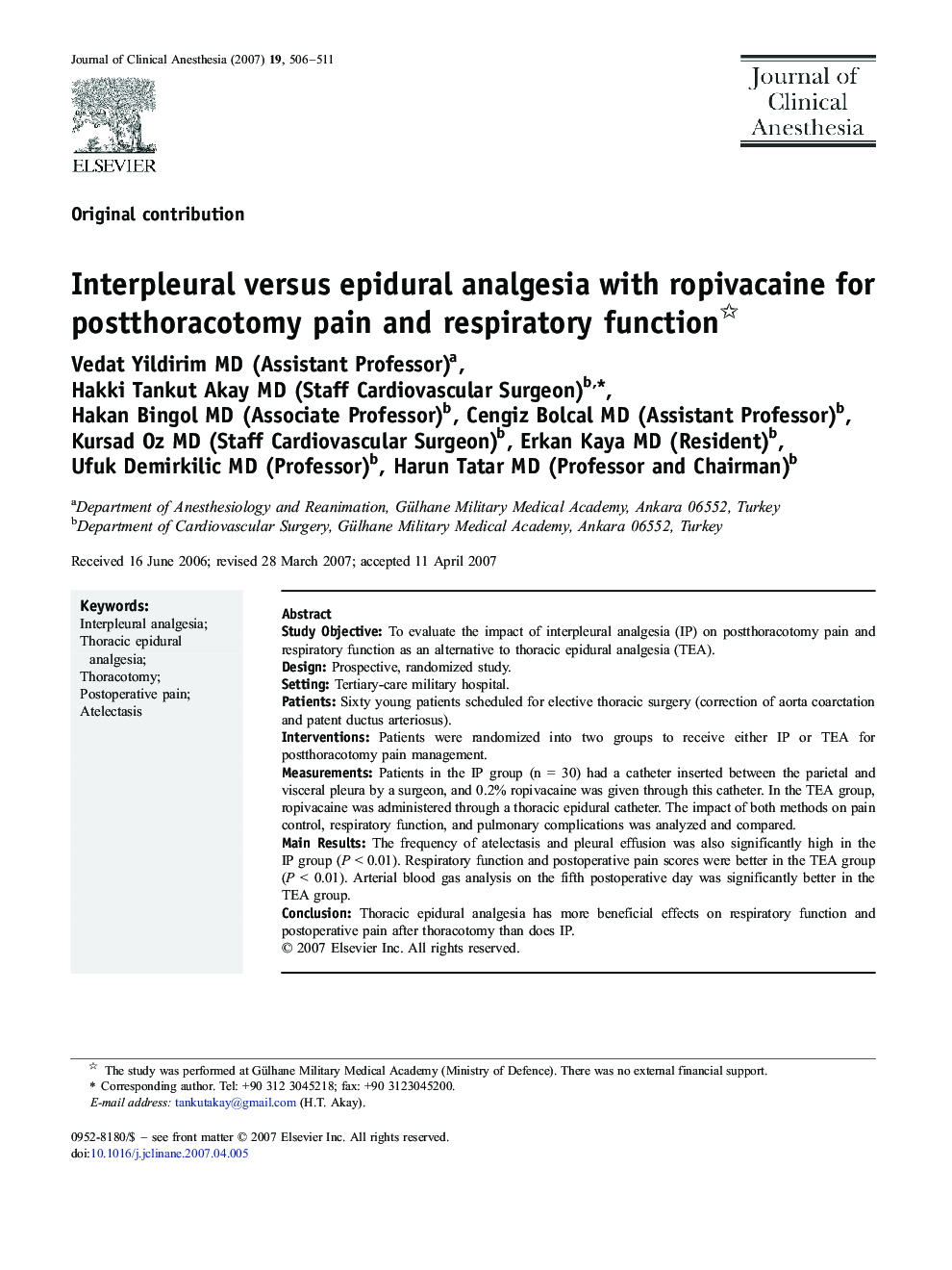| Article ID | Journal | Published Year | Pages | File Type |
|---|---|---|---|---|
| 2764195 | Journal of Clinical Anesthesia | 2007 | 6 Pages |
Study ObjectiveTo evaluate the impact of interpleural analgesia (IP) on postthoracotomy pain and respiratory function as an alternative to thoracic epidural analgesia (TEA).DesignProspective, randomized study.SettingTertiary-care military hospital.PatientsSixty young patients scheduled for elective thoracic surgery (correction of aorta coarctation and patent ductus arteriosus).InterventionsPatients were randomized into two groups to receive either IP or TEA for postthoracotomy pain management.MeasurementsPatients in the IP group (n = 30) had a catheter inserted between the parietal and visceral pleura by a surgeon, and 0.2% ropivacaine was given through this catheter. In the TEA group, ropivacaine was administered through a thoracic epidural catheter. The impact of both methods on pain control, respiratory function, and pulmonary complications was analyzed and compared.Main ResultsThe frequency of atelectasis and pleural effusion was also significantly high in the IP group (P < 0.01). Respiratory function and postoperative pain scores were better in the TEA group (P < 0.01). Arterial blood gas analysis on the fifth postoperative day was significantly better in the TEA group.ConclusionThoracic epidural analgesia has more beneficial effects on respiratory function and postoperative pain after thoracotomy than does IP.
